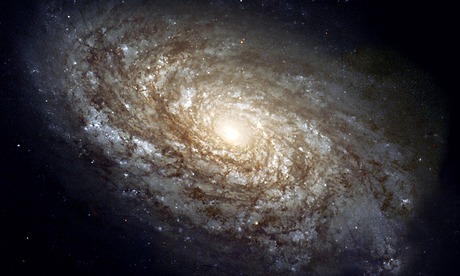
From hunting distant planets to identifying whale song, scientists have been asking the public for help with creating and trawling vast data sets for research. Called "citizen science", it has led to major discoveries.
1 Humans rock at pattern recognition
Galaxy Zoo was one of the first citizen science projects. It showed people galaxies and asked them to classify their shape. After seven months, volunteers had analysed 900,000 galaxies online. Galaxy Zoo, the largest study in the field, was based on analysis of 3,000 galaxies.
Could a computer have achieved the same? It's unlikely, even the most powerful computers can't beat the human brain's ability to analyse patterns and spot anomalies.
2 Zooniverse recently hit a million members
Zooniverse is a platform that grew out of the Galaxy Zooproject. In February it reached one million registered volunteers. It was initially focussed around astronomy projects, but it has branched out into a range of research, including a project that models Earth's climate using historic ship's logs, Old Weather, and another that is trying to understand what whales are saying, Whale FM.
3 One of citizen science's biggest success stories began by accident
Foldit is a website where the public models the folding of proteins, work that contributes to advances in synthetic chemistry and genetics. But that's not what its creators at the University of Washington initially intended. In 2005 they released Rosetta, which used people's spare computing power to experiment with protein shapes. It included a visualization that showed what the program was doing but, when users found they could model the shapes better than the software, the team rewrote the software to allow user input and thus Foldit was born in 2008.
4 It's not just for fun, citizen science is generating good research
In 2012, a planet in a four-star solar system, a rare and complex orbital setup, was discovered by members of the public through the Planet Hunters project. In total, there have been around 60 papers published by Zooniverse's projects, the majority space-related – Foldit has seen seven academic papers published.
5 But it's not a "magic bullet"
The types of scientific problems that can be solved by involving volunteers online are limited. They usually involve large amounts of data than can be boiled down into a visual challenge that requires pattern analysis. Much scientific research can't be reduced in this way and so it's no surprise that the most successful projects have been centred around genetics or astronomical data.
6 Engagement and education is also important
At its best, citizen science is a two-way street that makes the public participants in the research. One project in the Congo basin saw locals mapping instances of deforestation and poaching with GPS devices, information that was then fed into other research on the destruction of forests.
7 Gamification could be the future
Instead of simply enticing volunteers with the feel-good factor of contributing to scientific research, some new projects are presented as games. These include Fraxinus, a Facebook game that aids tree fungus research, and Play to Cure, an iOS and Android app from Cancer Research.
The hope is to divert the time people spend gaming towards scientific research.
8 Not everyone's convinced
Some see the gamification of citizen science projects as detracting from the public education and research element of the movement. Platforms like Zooniverse take pains to cite the contributions of their volunteers, casting them as scientific collaborators, rather than just thumbs jabbing away at iPhone screens. On the other hand, one can take the pragmatic view that with so many people playing games on their smartphones, even tapping into a small fraction of that energy could have a huge impact on research.
9 Don't think citizen science just happens on your computer
Observations of the natural world, particularly wildlife, is an area where the public was engaged long beforethe internet or even computers. New examples include "BioBlitz", events where families join naturalists to make a record of the species in an area within 24 hours, British Trust for Ornithology's citzen science Garden Bird Watch survey was launched in 1994 and is still going strong while the "Christmas Bird Count", an annual census of birds launched in 1900, takes the challenge to an international audience and is administered by the National Audubon Society in the states.
10 It's not new
Members of the public have long contributed to scientific research. Charles Darwin corresponded with amateur naturalists around the world, developing his theory of evolution with the evidence they provided.

